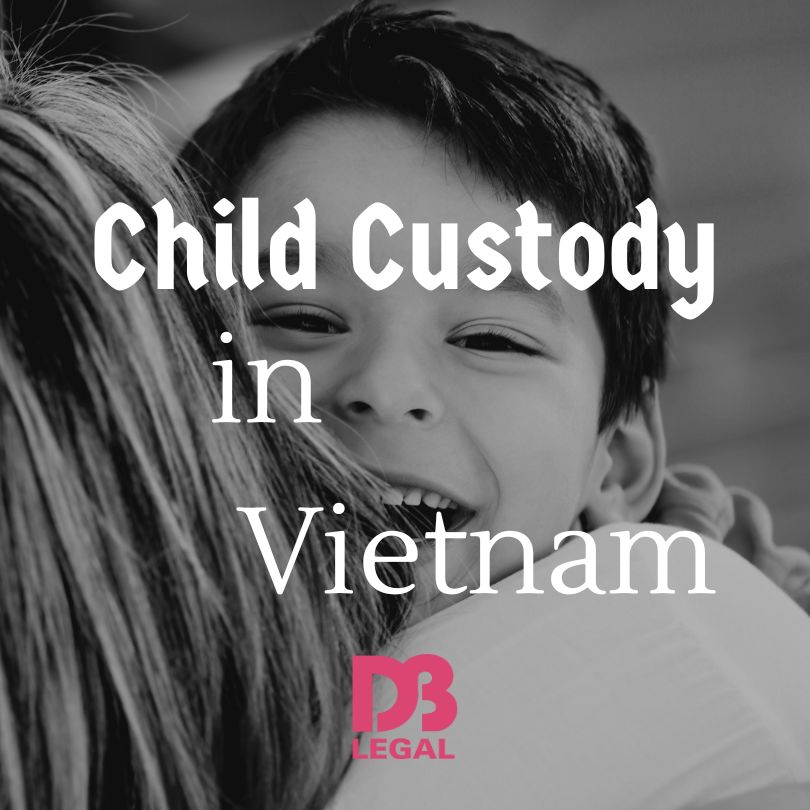Child Custody In Vietnam
Child custody is a crucial aspect of family law that deeply impacts parents and their children. Understanding and navigating child custody regulations can be a complex and challenging task, particularly for foreign parents residing in Vietnam. In this comprehensive guide, we’ll explore the legal framework, determining child custody, common custody arrangements, visitation rights, factors influencing custody decisions, and modifying custody arrangements.
Table of contents:
I. The Legal Framework
To begin, it is imperative to comprehend the legal framework that underpins child custody in Vietnam. Key legislation forms the foundation for child custody decisions in the country. The Family and Marriage Law in Vietnam is the primary law governing child custody, which outlines the fundamental principles and guidelines for custody arrangements. This law governs issues related to family relationships, marriage, and child custody, providing a legal structure within which decisions are made.

II. Determining Child Custody
Determining child custody includes intricate and multifaceted processes that require careful consideration of various factors to ensure the child’s best interests are at the forefront of every decision. Let’s delve deeper into the key aspects that courts assess when making child custody determinations in Vietnam:
- Age of the Child: The age of the child is a significant factor. Young children may require more consistent and stable routines, making primary residence with one parent more common. Older children may have their views taken into account. For example, for a child under 36 months of age shall be directly raised by the mother unless the mother cannot afford to directly look after, care for, raise, and educate the child or otherwise agreed by the parents in the interests of the child (Article 81.3 of the Law of Marriage and Family), or if a child is full 7 years or older, the Court will ask his/her opinion about living with the Father or the Mother;
- Child’s Health: The physical and mental health of the child is critically important. Any special needs or health issues must be considered to ensure the child’s well-being and proper care.
- Emotional Ties: The child’s emotional bonds with each parent are essential. The court considers the depth and quality of the relationship with each parent, as strong emotional bonds can positively influence custody decisions.
- Parental Capability: The court conducts a comprehensive evaluation of each parent’s capability to provide a safe and nurturing environment for the child. This assessment entails a close examination of several factors.
- Physical Health: The physical health and well-being of each parent are assessed to ensure they are capable of caring for the child’s needs.
- Financial Stability: The financial stability of each parent is another crucial element. Courts also consider whether a parent can provide for the child’s basic needs, education, and overall welfare.
III. Obligations and rights of the parent who does not directly raise children after divorce
The parent who does not directly raise a child shall support this child. Child support shall cover all expenses for the child's upbringing and education, as agreed upon by both parents. If the parents cannot agree, the Court will determine the child support amount based on the paying parent's income, ability to pay child support, and the child's essential needs. The court-determined child support amount cannot be less than half of the minimum regional wage in the paying parent's place of residence per month for each child.
If the parties cannot agree on the method of child support payment, the Court shall determine whether it is monthly payments or another method appropriate for the child's needs and interests and the financial circumstances of the parent obligated to pay child support.
After divorce, the person who does not directly raise a child has the right and obligation to visit and care for this child without being obstructed by any person. The parent who directly raises a child has the right to request a court to restrict the right of the other parent who does not directly raise this child if the latter takes advantage of his/her visit to and care for the child to obstruct or adversely affect the looking after, care for, raising and education of this child.
IV. Conclusion
Navigating child custody in Vietnam involves understanding legal principles, considering the child’s best interests, and evaluating parental capabilities.
This information contained herein is of a general nature and is intended to provide updates on the Laws for information purposes only. DB Legal shall not be liable for any use or application of the information for any business purpose.
For more information: Our Vietnamese social page or English social page
Call Us:
| Local Office Numbers: | |
| Hotline/Whatsapp/Zalo: | +84 357 466 579 |
| Email: | contact@dblegal.vn |
Related posts:
- Divorce in Vietnam: Trends, Legal Framework, and Resolution of Complex Disputes
- Divorce Lawyers in Ho Chi Minh, Vietnam
- Compilation of Judgments on Marriage and Family with Plaintiff(s) Residing Abroad
- Complexities of Child Custody in Vietnam
- Modifying the Child Custody In Vietnam
- Divorce Lawyers in Da Nang, Vietnam
- Divorce Involving Foreigners in Vietnam
- Unilateral Divorce in Vietnam: A Comprehensive Guide
- How to Divorce In Vietnam: A Comprehensive Guide
- Divorce By Mutual Consent In Viet Nam
.png)



